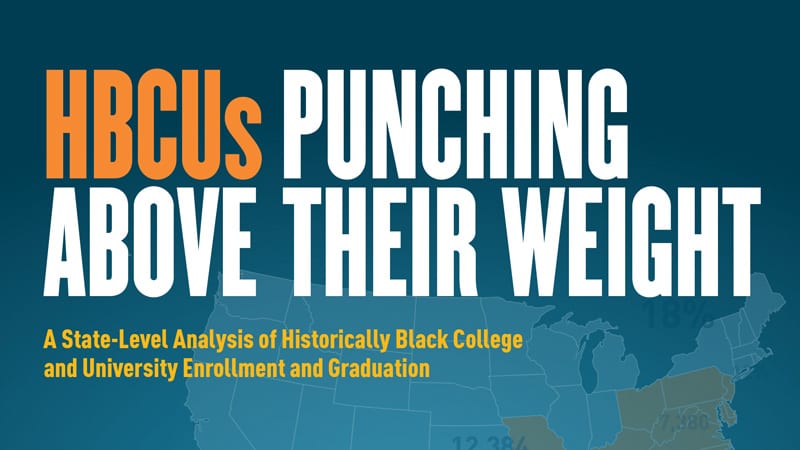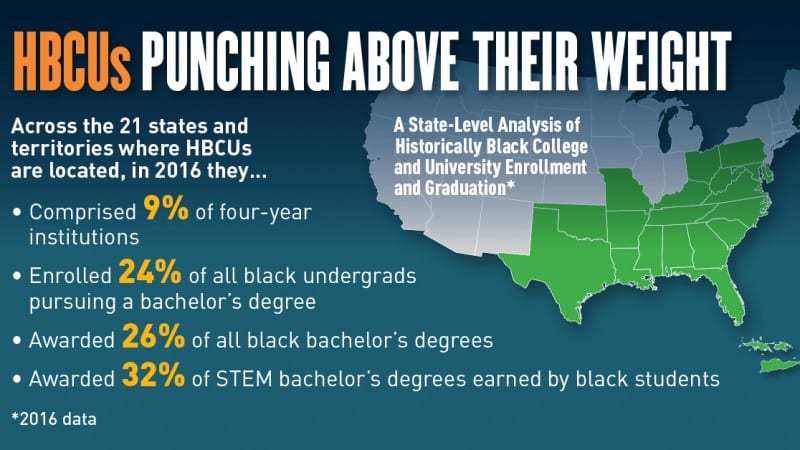New Report Proves HBCUs Punch Above Their Weight

HBCUs Punching Above Their Weight, a research report released by UNCF, makes a strong case for a powerful proposition: Given their small average size and a history of being under-resourced, the enrollment, degree and economic impacts of HBCUs on African Americans in their respective states are significantly greater than one would expect.
“The impact of HBCUs has been collectively downplayed, overlooked and undervalued, and HBCUs Punching Above Their Weight illustrates what everyone who has graduated from or taught at an HBCU has long known,” said UNCF president and CEO Michael L. Lomax, Ph.D., “that for students in search of a higher education and for a country in urgent need of college-educated workers, a country rapidly becoming a majority-minority workforce, there’s no better choice than HBCUs.”
Punching Above Their Weight shows that, in their most important function—enrolling and graduating college students—HBCUs perform far better than their sizes and resources would lead one to expect.
Taken state by state, Punching Above Their Weight demonstrates HBCUs’ “multiplier effect” is impressive. Some examples include:
- Florida HBCUs represent just four percent of the state’s four-year colleges and universities but enroll nine percent of all black undergraduates in that state, and award 18% of all bachelor’s degrees to black college graduates.
- Louisiana HBCUs represent 19% of all colleges and universities in the state, but 38% of all black students and graduates.
- Virginia HBCUs represent just 11% of the state’s colleges and universities, but 29% of the state’s black college students and 32% of its black college graduates.
- Delaware’s sole HBCU represents 20% of the four-year institutions in the state but it enrolls 40% of the black undergraduates and awards 47% of bachelor’s degrees to black students in the state.

Read more at UNCF.org/PATW